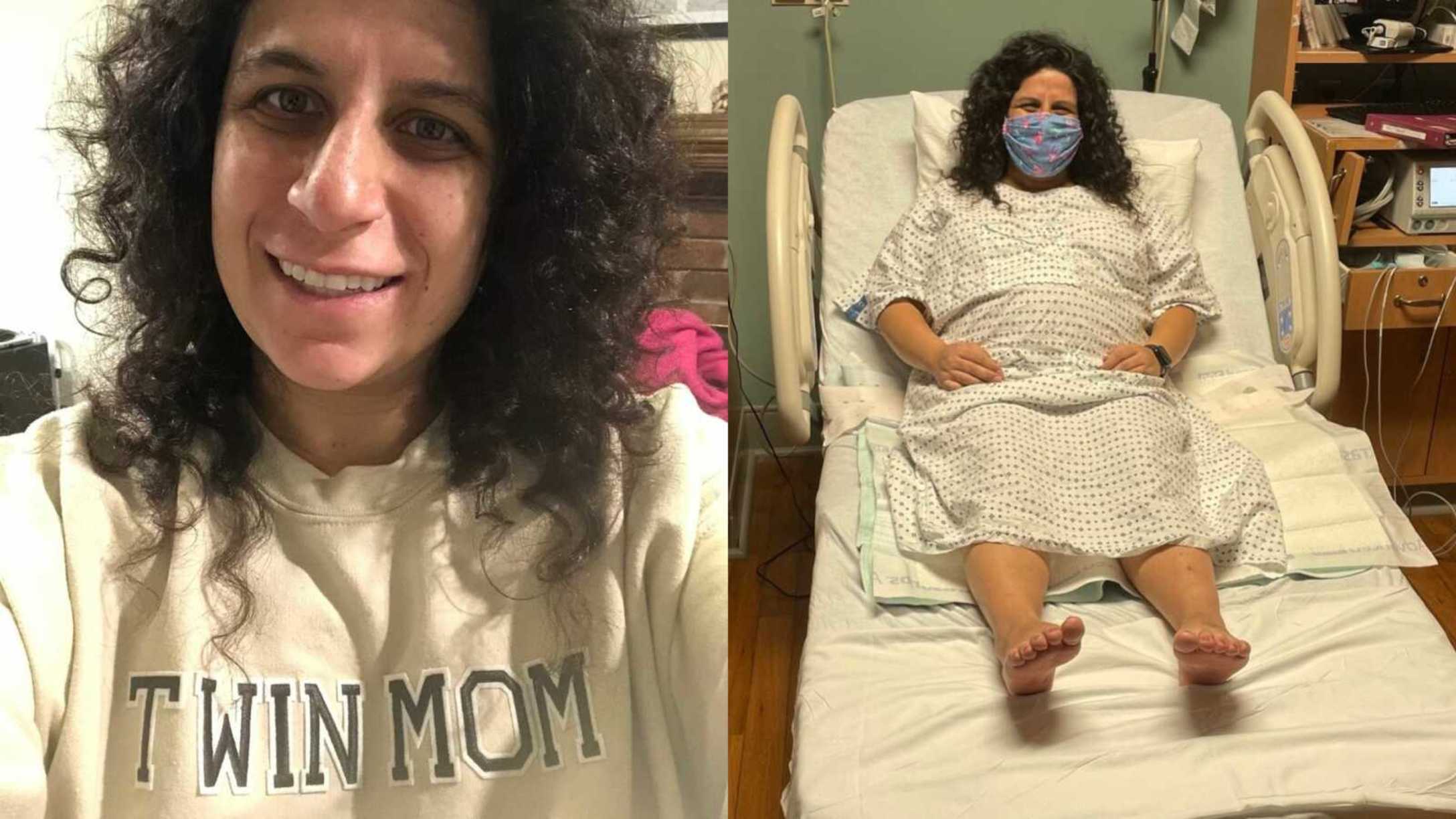
TRIGGER WARNING: This post contains information about stillbirth and infant loss, which may be triggering to some.
My husband – we’ll call him ‘J’ – and I have been together for almost 12 years; we met when I was in my second semester of college and have been inseparable since. In 2019 we got married, and in late 2021 we decided it was time to begin trying to grow our family. We already had a few fur babies at home, so we wanted to add a human into the mix.
Trying to get pregnant thankfully only took a few months, and on March 12, 2022, we found out I was expecting! We were ecstatic, and I spent the next few days floating on cloud nine. I had always dreamt of becoming a mom, and it truly felt like the most perfect timing in our lives.
We kept this exciting news to ourselves for a few weeks. We wanted to have a doctor confirm the pregnancy before telling anyone around us, although deep down I really wanted to shout it from the rooftops. I had no idea what to expect at the ultrasound — other than what I had read online and seen in movies — which, to be honest, could not have prepared us for what we ended up finding out.
The First Ultrasound
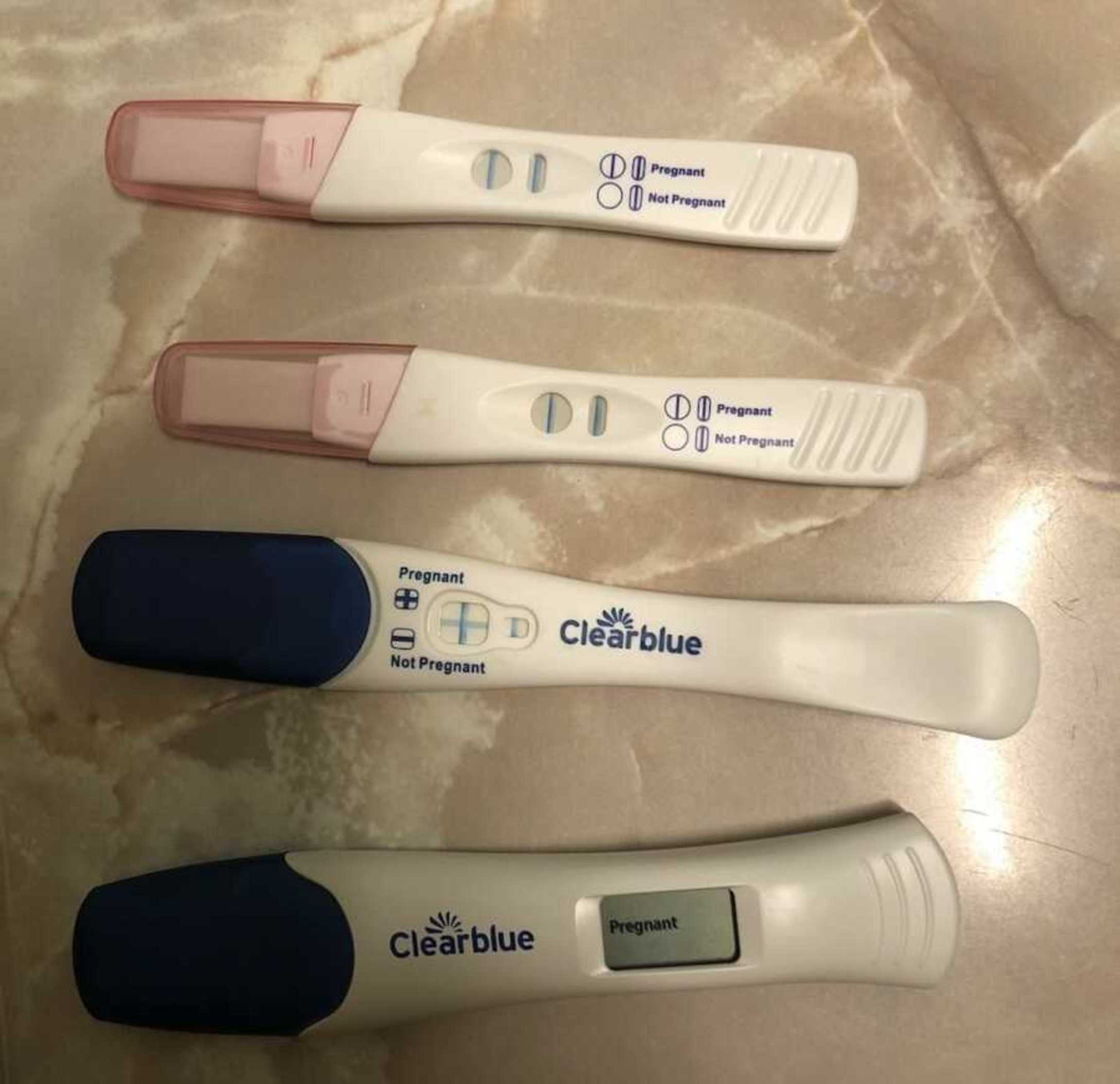
As soon as an image popped up on the screen, the first words the ultrasound technician muttered were, "Uh, I see two babies." J responded, "Are you serious?" and she said, "As serious as a heart attack." My mind was going wild.
This woman just told us we are having twins and she was having a heart attack? I didn’t fully understand what was happening. No one actually has twins, am I right?
My obstetrician informed us our babies were identical twins, they shared one placenta, and this would be a high-risk pregnancy. I would likely need to deliver them a few weeks early via a C-section. As excited as we were to know we had two healthy babies growing inside of me, I was also terrified — and, if I’m being totally honest, a little let down.
Knowing I would need to have a C-section was disappointing and scary, but the excitement I felt about bringing two little ones into our family outweighed any of those fears. I also knew that a C-section was what had to be done, for my daughters’ health.
Life During Pregnancy
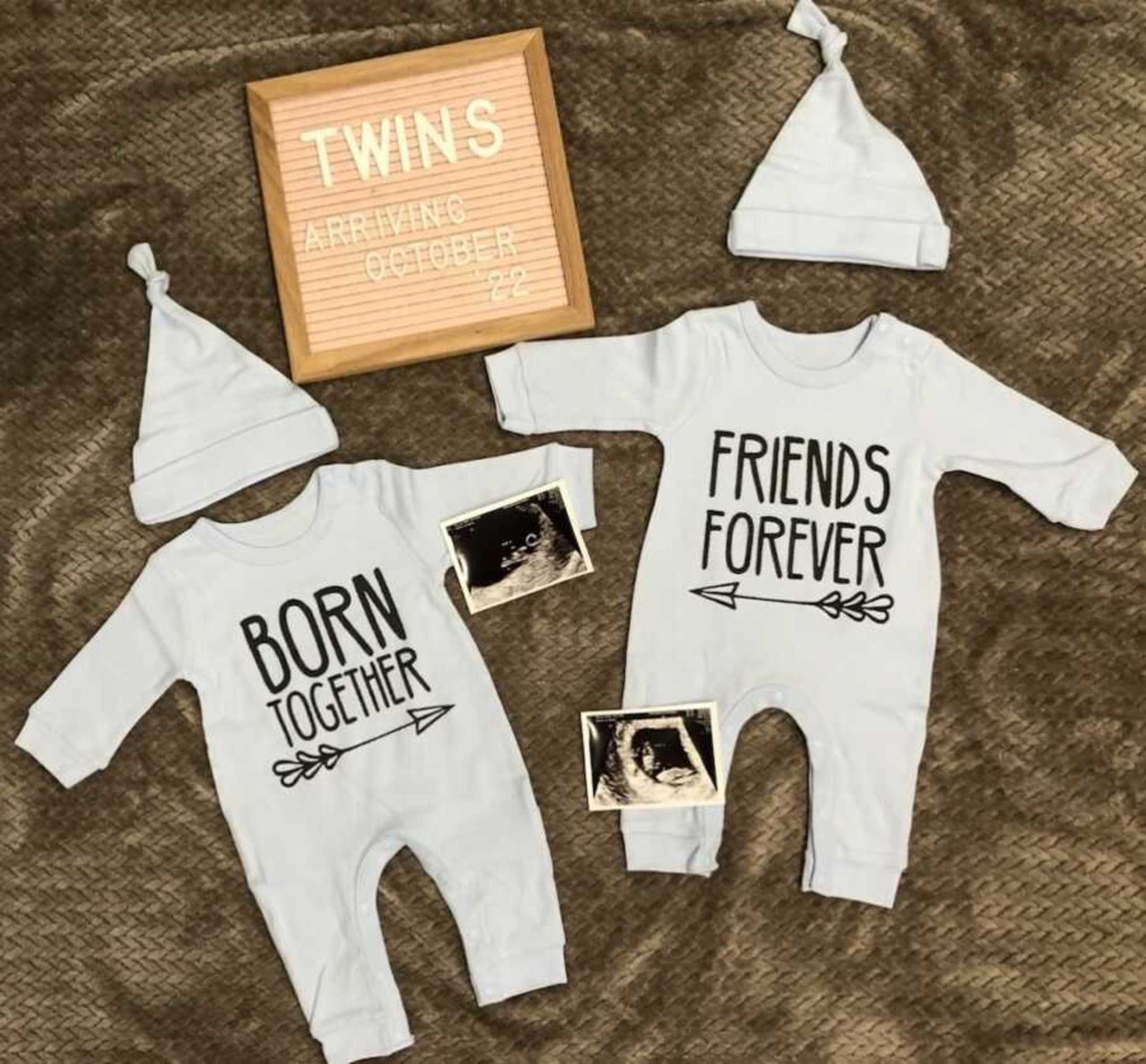
Throughout my pregnancy, I continued to meet with my regular OB and a prenatal specialist regularly, and the first few months of my pregnancy fortunately were relatively uneventful. I really enjoyed being pregnant. I loved to see my body grow, change, and make room as my babies were getting bigger and stronger. Each new stretch mark was like a battle scar I proudly wore.
As the pregnancy progressed, Baby Girl B was growing at a faster rate than Baby Girl A (although she did continue to grow slowly), and my doctors were concerned. At one of my appointments at the beginning of my second trimester, they also informed us my cervix had shortened a considerable amount from the previous visit the week before, and this likely meant I would be delivering sooner rather than later.
At my very next visit, during the ultrasound, the technician called the doctor into the room to examine me even further. They saw the blood flow to Baby A was inconsistent with what Baby B was receiving, and since they shared one placenta, this was very concerning. The perinatal specialist told me I would need to be immediately admitted as inpatient to the hospital (at only 25 weeks 3 days).
She did tell us we had enough time to go home and pack our bags for the hospital; the babies were not coming that day by any means, but we needed to head to the hospital as soon as we could after that. On the drive home, we called our parents to tell them the news we were just given. We went home and I packed a quick bag of some toiletries, chargers, and clothes.
Our Stay at the Hospital
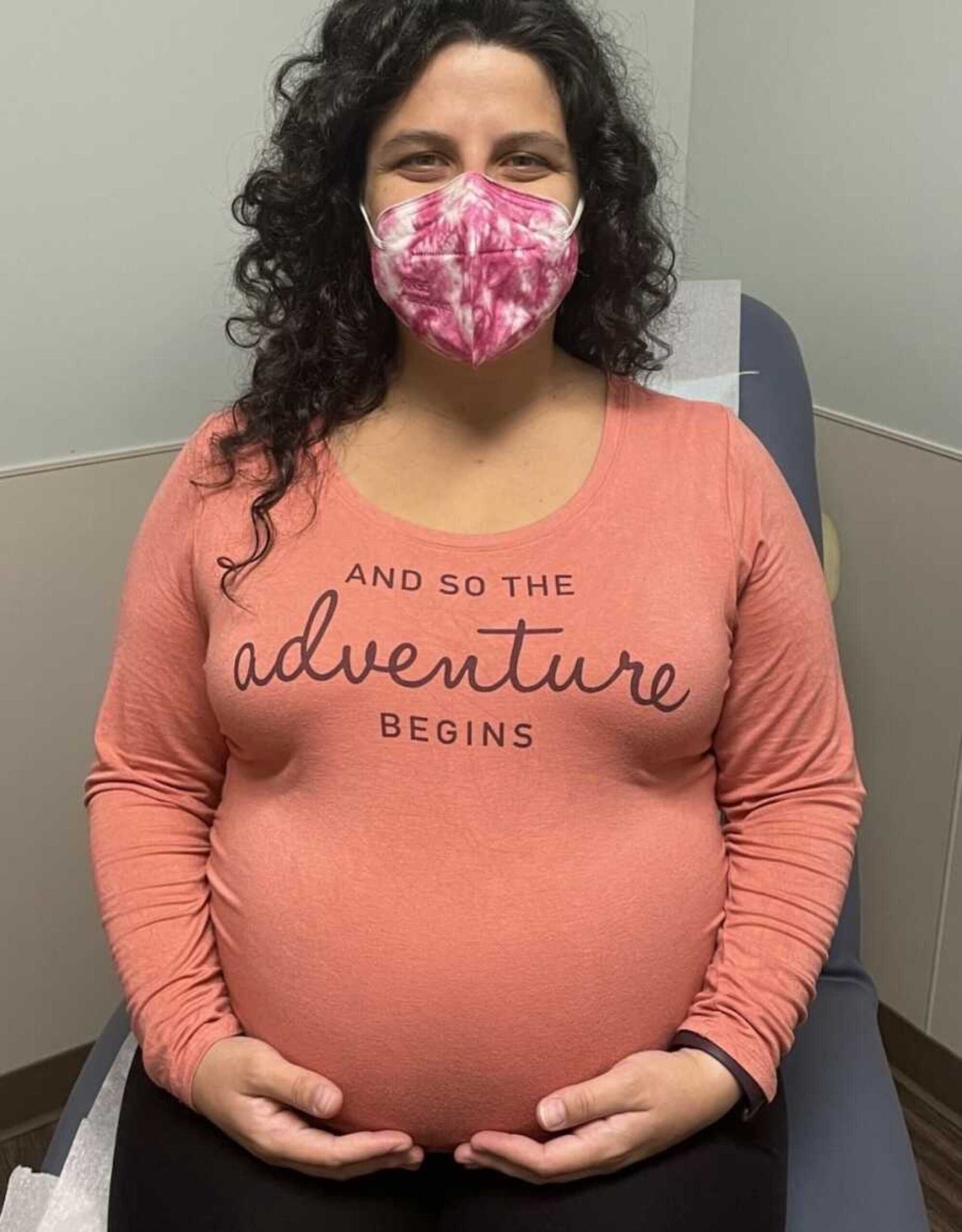
My husband and I then moved into my room in the labor and delivery wing of the hospital. Since I was feeling perfectly healthy and had no concerns for my own well-being, it was a very eerie feeling being admitted into a hospital.
My babies, on the other hand, were being constantly monitored — there were bands that had to go around my belly to check their heart rates and movements. They both continued to grow, and the twins were both doing as well as they could be during every check.
As I was not allowed to leave the hospital — and no guests could come in, due to COVID restrictions — part of me felt like I was a prisoner. I told one of the nurses I was simply an incubator for my baby girls; I wasn’t even really the patient there.
J and I both worked from home (or, at this point, worked from the hospital) so we were able to work on our computers every day in the hospital room. J did have to go home every few hours to let the dogs out and take care of our house. He would also go home to work out and shower every morning.
I was beginning to get used to our new routine. The nurses would come into our room to monitor my babies, check my blood pressure and temperature a few times throughout their shift, and I oddly really enjoyed the hospital food.
My babies were both incredibly active (which is a good thing!) but that did occasionally make it difficult for the nurses to find them on their monitors. During each ultrasound, the twins had healthy heartbeats and looked great.
On my sixth day, the perinatal specialist called the hospital room and told me it would be OK if I went home and instead just checked in every few days to monitor the babies. I told her I felt uncomfortable being discharged right then and, as nice as it would have been to be in my own home, I wanted to wait a few more days for one last ultrasound — which was being done every three days.
I said that, after the next ultrasound later that week, if everything still looked normal in terms of the blood flow between them and the growth of the babies, I would then go home.
My husband and I both finished our full days of work after that call. At about 7:30 p.m. (right at a shift change for the nurses), they came in to look for the babies’ heart rates and to check on their movements. My husband was on his way out to meet his sister and nephew for dinner — they just so happened to be in town for the night — and the nurses were having a hard time finding the babies.
I had some pain in my belly, but I had eaten a huge milkshake earlier that day and they were pushing hard on me to find the babies, so I assumed it was just a regular stomachache. I couldn’t feel the twins moving around as much, but the ultrasound showed they were healthy and active, so the nurses said they’d be back in about an hour to look for them again, in order to determine their heart rates.
Something Happened When the Nurse Left
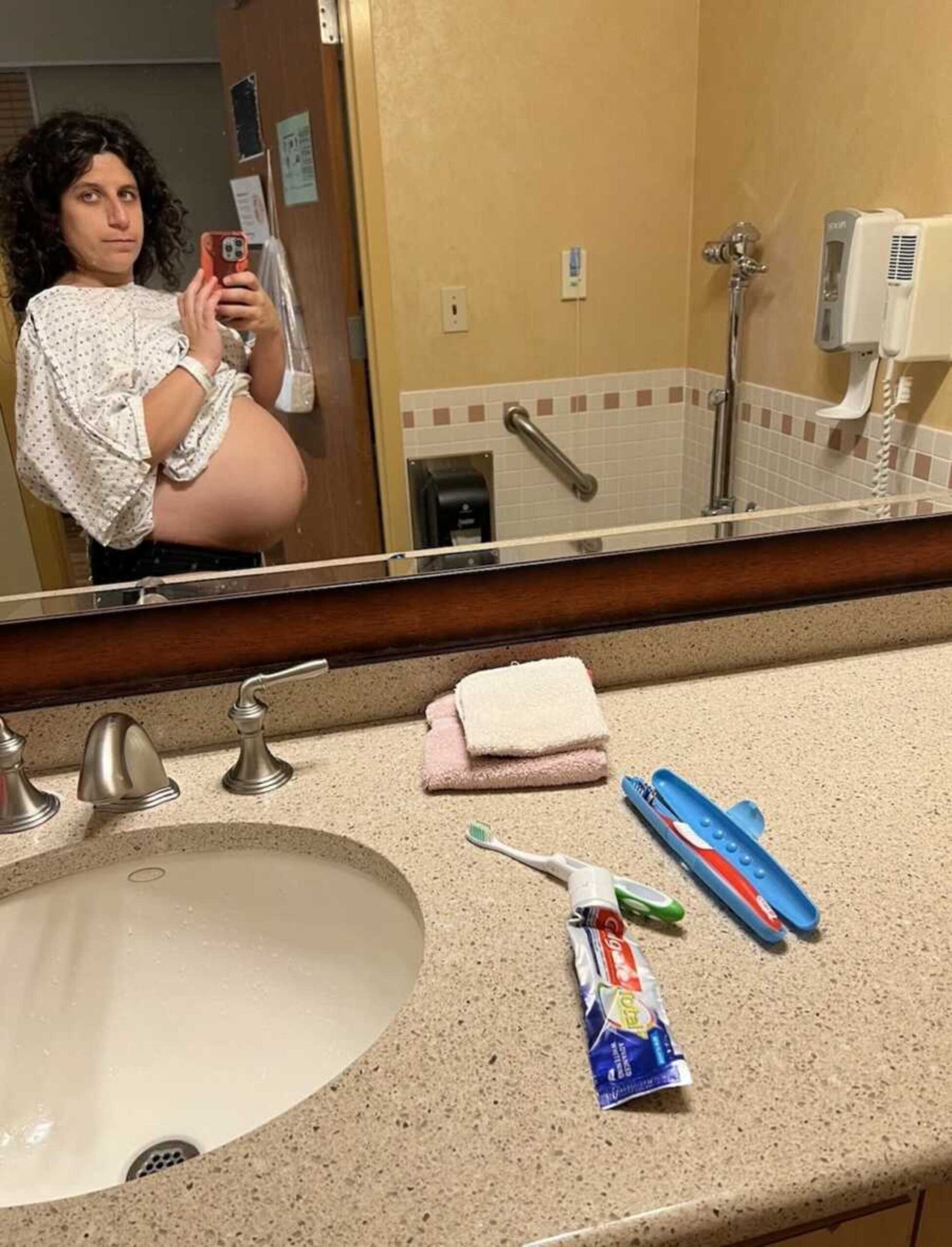
I was completely alone in the room, and as I stood up to go to the bathroom, I felt liquid pouring down my leg. I looked down and saw quite a bit of blood on the bed and the floor. It felt like time stopped.
I called the nurse back into the room, and she sat me on the toilet so she could go grab a doctor. The tears came and I began panicking. She told me I was in good hands and sometimes women stayed pregnant for weeks after their water breaks. I felt relief but somehow knew that wouldn’t happen to me.
I texted my husband to come back right away because I was bleeding. Thankfully he was only a few minutes away and rushed right back. When he came into the room he said, "How are you?" I hugged him and said, "I’m so scared."
My nurse ran a swab inside of me that tested for amniotic protein, and it came back positive — meaning my water had indeed broken. The on-call OB (who I was just meeting for the first time) then inserted a speculum inside of me to see if my amniotic sacs were broken, and they were.
She checked with her fingers to see how dilated I was, and she said I was fully dilated. Baby A was practically through the birth canal already; her head was the only part of her still inside of my uterus.
Because my babies shared one placenta, the only option was to perform an emergency C-section right then. I would need to be under general anesthesia, unfortunately my husband wouldn’t be able to come into the operating room with me, and this needed to happen immediately.
The C-Section
All of a sudden, what felt like 20 nurses and other hospital staff started pouring into my room. I was absolutely terrified and truly had no idea what was about to happen. It felt like I was watching this from above, as if I was watching it happen to somebody other than me.
I thought I might pass out from the terror I was experiencing. Nothing about this was what I expected. I was not ready and my babies certainly weren’t either; they were only 26 weeks 2 days gestational age! I wasn’t even in my third trimester at this point.
They rushed me into an OR down the hall while my husband and I said our goodbyes in between tears and "I love yous." In the operating room, they began prepping me for surgery. I didn’t recognize anyone in the room except for one nurse and the OB who I had just met a few hours prior.
There was so much commotion going on around me as more staff (the anesthesiologist, NICU nurses, labor and delivery nurses) started coming into the room. They inserted a catheter, poured iodine on my abdomen, then the anesthesiologist put a mask on my face and told me to take some deep breaths.
It was so cold in the operating room, and I was shaking — both from the temperature but also from the fear. They were reading out my medical information, and I continued to feel like I was watching this all happen to somebody else. There was just no way this was my life! The last thing I remember was one of the nurses rubbing my hair and telling me, "It’s going to be OK," which I absolutely did not believe.
Meeting My Girls
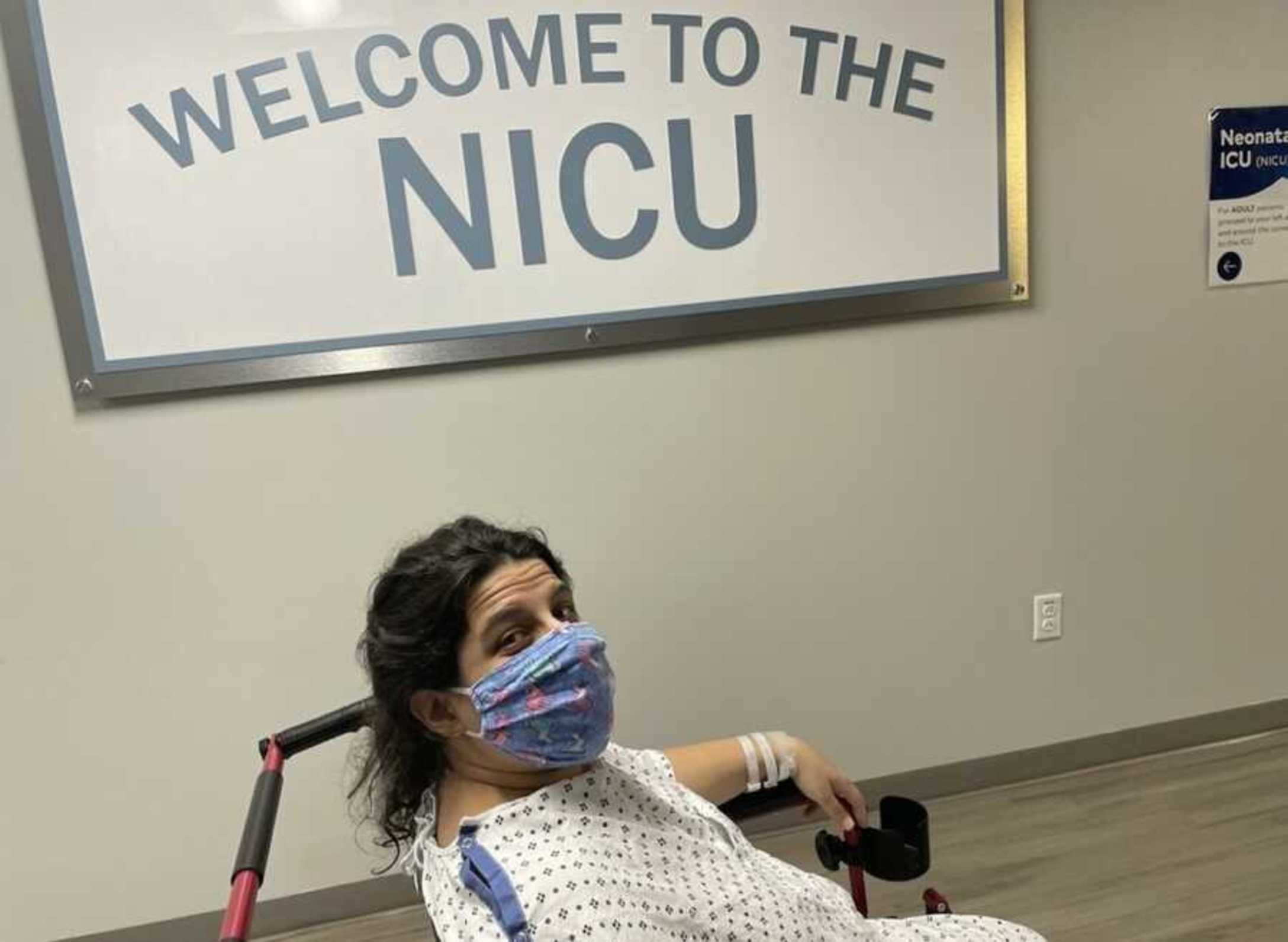
When I woke up, I was in a different hospital room than I had been in previously, and my husband and mom were looking over me. I was really confused. I had no idea where I was or what time it was; I didn’t even know if my babies were alive.
J told me I was now a mom and we had two baby girls. It blew my mind that just a few hours ago I was pregnant and now I wasn’t. I later learned my baby girls were born at 9:20 and 9:21 p.m. on August 8, weighing 1 pound, 7 ounces and 2 pounds, 1 ounce.
That night, I was in a lot of pain and it was very difficult for me to talk, as the breathing tube I needed during the surgery really hurt my throat. But I was able to get a few hours of sleep here and there. J visited the babies in the NICU and FaceTimed me while he showed me my daughters.
We were fortunate enough that the NICU (a level 3 NICU) was just one floor up from the labor and delivery floor. The postpartum nurse brought in a breast pump and showed me how to attach it to myself so I could begin pumping breast milk. I was able to produce a few millileters of colostrum every few hours, which J ran upstairs to hand off to the nurses each time.
After calling up to check they were stable enough for us to come visit, we made our way upstairs to the NICU. My husband pushed me in a wheelchair, where we then had to scrub in for three minutes before we were able to enter their rooms. Thankfully, they shared one room with a curtain in between the two.
The first thought I had upon seeing "A" (Baby B, the bigger and stronger of the two) was how tiny she was. She was hooked up to all kinds of plugs and tubes, and it was terrifying to see my child like that. Baby A, "V," wasn’t stable enough for us to even peek into her tiny isolette, as there were nurses and specialists working on keeping her alive.
I couldn’t hold back my tears. Nothing about this experience was as I had expected it to be. I always assumed I would deliver my babies naturally, I’d hear them cry right away, and then they’d be placed on my chest for skin-to-skin comfort. I never imagined I wouldn’t even be able to touch my children or that we wouldn’t hear them cry for the first few weeks of their lives. Absolutely nothing could have prepared me for this.
For babies who are born this prematurely, their nerve endings are closer to the skin and their skin is so thin that we’re not able to touch them or rub their skin in the same way we would a full-term baby. We could only press on their skin with our whole hand, trying to mimic what it would feel like to still be in-utero, which is where they should have been for 96 more days.
NICU Life
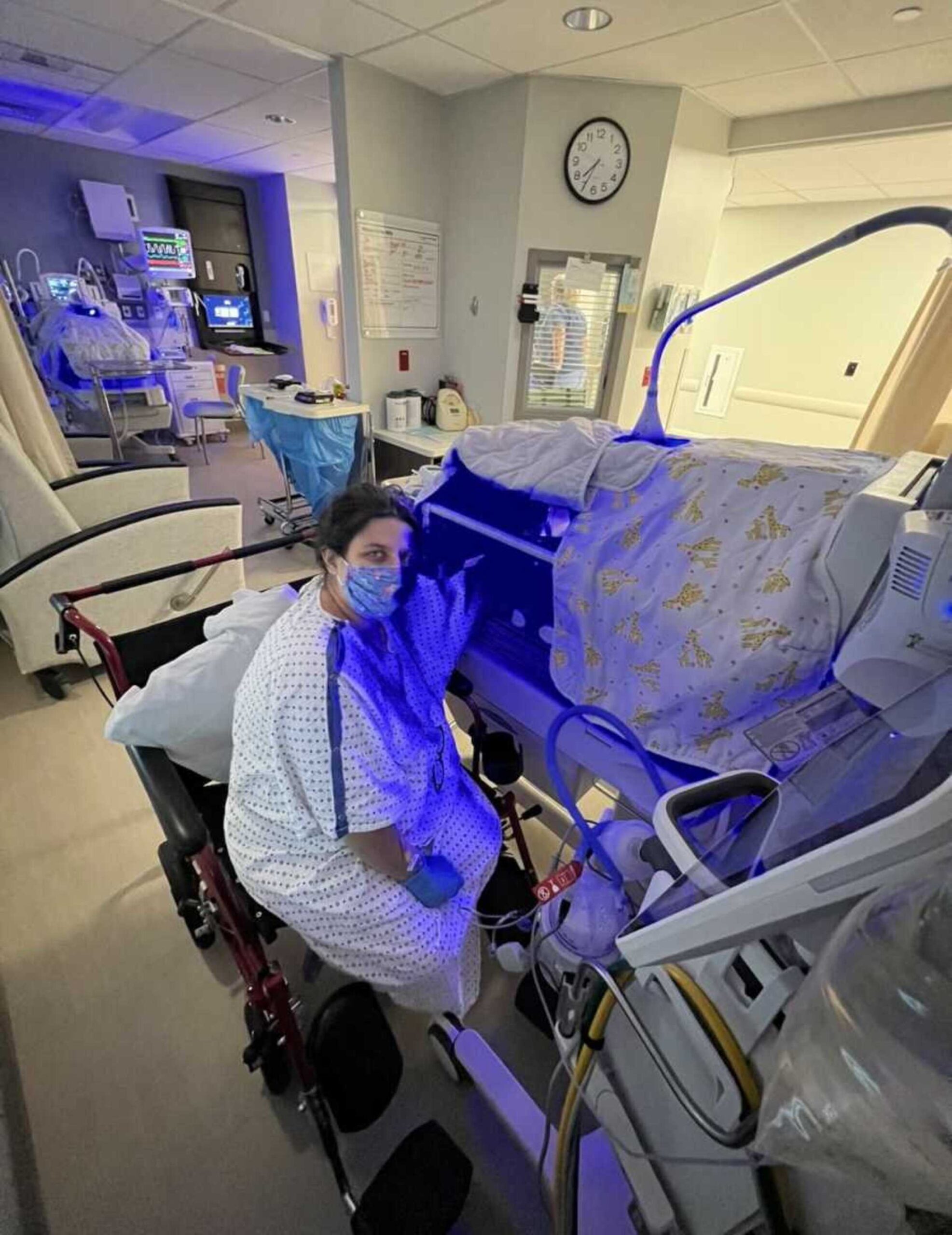
For the rest of that week, J and I spent our time together in the hospital. I was eventually able to stand up and walk around a little bit, go to the bathroom independently, and finally take my first post-birth shower. I was in a lot of physical pain (which I expected) and an incredible amount of mental pain (which I did not expect).
We visited our girls a few times each day. I pumped a small amount of colostrum (eventually breast milk) every two hours to be inserted into their feeding tubes. We called and texted our family and friends to share with them the news.
It felt like we were in this strange limbo — a part of us was over the moon because we had brought two babies into this world, but another part of us was too scared to be excited. We had no idea what the future would look like as a family of four.
I was discharged from the hospital later that week, and I felt so bittersweet about going home. I didn’t have a child (or two) to hold and snuggle; I felt like a failure. My body had failed me — and my children.
The next few days felt like a blur consisting of pumping, continuing to bleed from the major abdominal surgery I had endured, and lots and lots of tears. J and I were able to visit our girls in the NICU at least once a day for those first few weeks. We would keep bringing in my expressed breast milk, and the nurses would provide us with medical updates each time we saw them.
The following week, J and I returned to work full-time. In all honesty, it felt like a healthy distraction to be able to turn our attention to somebody other than ourselves and our sick children.
At this point, we started to settle back into another new routine — calling the NICU for updates at least once a day, working our normal hours, and then visiting the girls at some point throughout the day as well. We learned to celebrate the smallest of wins, like when our girls "graduated" into the next size of diaper.
On Tuesday, August 23, as J and I woke up to our alarm reminding us it was time for me to pump, we noticed we both had missed calls and voicemails from one of our daughters’ doctors, telling us to call her back as soon as we were able.
When we called her back, she told us "A" was critical and we should come in as soon as we could. While we were driving to the hospital, fearing the worst, I remarked that the weather felt very symbolic to our lives at the moment — dreary, foggy, dark … hard to see what’s coming.
A Critical Decision
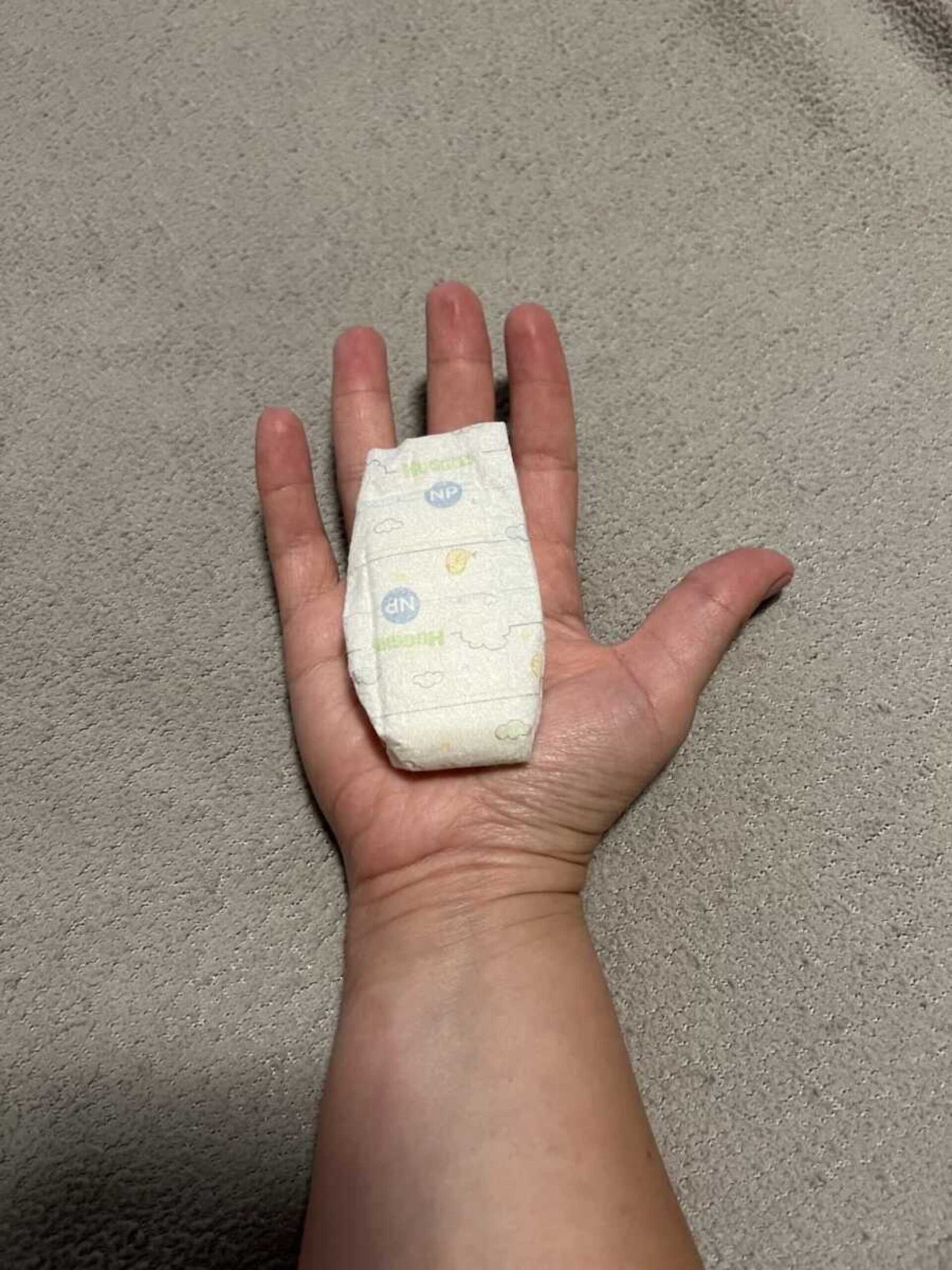
When we got to the NICU, the doctor, nurse practitioner, and nurse asked us to go to the multipurpose room down the hall. To save you all from the medical details, I’ll say this — A’s blood pressure dropped significantly and they couldn’t get it up with any medications, and then her kidneys eventually stopped functioning altogether. The doctor told us that it was time to make an incredibly difficult decision about "A."
My husband and I talked privately and decided to take her off medical intervention and to put her on morphine so she could be comfortable and not continue to be in pain. What she was going through, there was no coming back from. She had been fighting to stay alive, but at this point she couldn’t fight anymore.
They turned off the machines that were helping keep her alive and removed her from the isolette. Up until this point, A had never been stable enough to be held outside of her isolette, so I was then able to hold my precious baby girl for the first and last time.
As we took turns holding her, we talked to her, apologized to her for the life she had, and said our goodbyes. After a few hours, the doctor came into our room to see if our daughter still had a heartbeat, and she could not find one. The time of death was 11:10 a.m. on August 23. Our perfect angel lived only 15 short days.
We decided we wanted to have A cremated and have her ashes planted into a tree or another plant, something where new life can be grown. We want her memory to be able to live on. It felt like we were living in a dream that I knew would never end.
You know when you’re underwater, and you can see the surface but you can’t quite reach it? Every time you think you’re close, you get pulled even further down and you haven’t been able to catch your breath yet. That’s what those first few days after her death felt like.
Our sweet, perfect little girl never got to see the sunshine. She never breathed on her own or saw the outside world. She was never even able to see her identical twin sister. She knew of nothing but beeps and machines and pain.
I remind myself that at least she was at peace toward the end, and she was always surrounded by so much love. Most days, sleep seemed to be the only thing strong enough to distract us — but even then, my dreams were filled with pregnancy and babies and twin thoughts.
Living With Grief
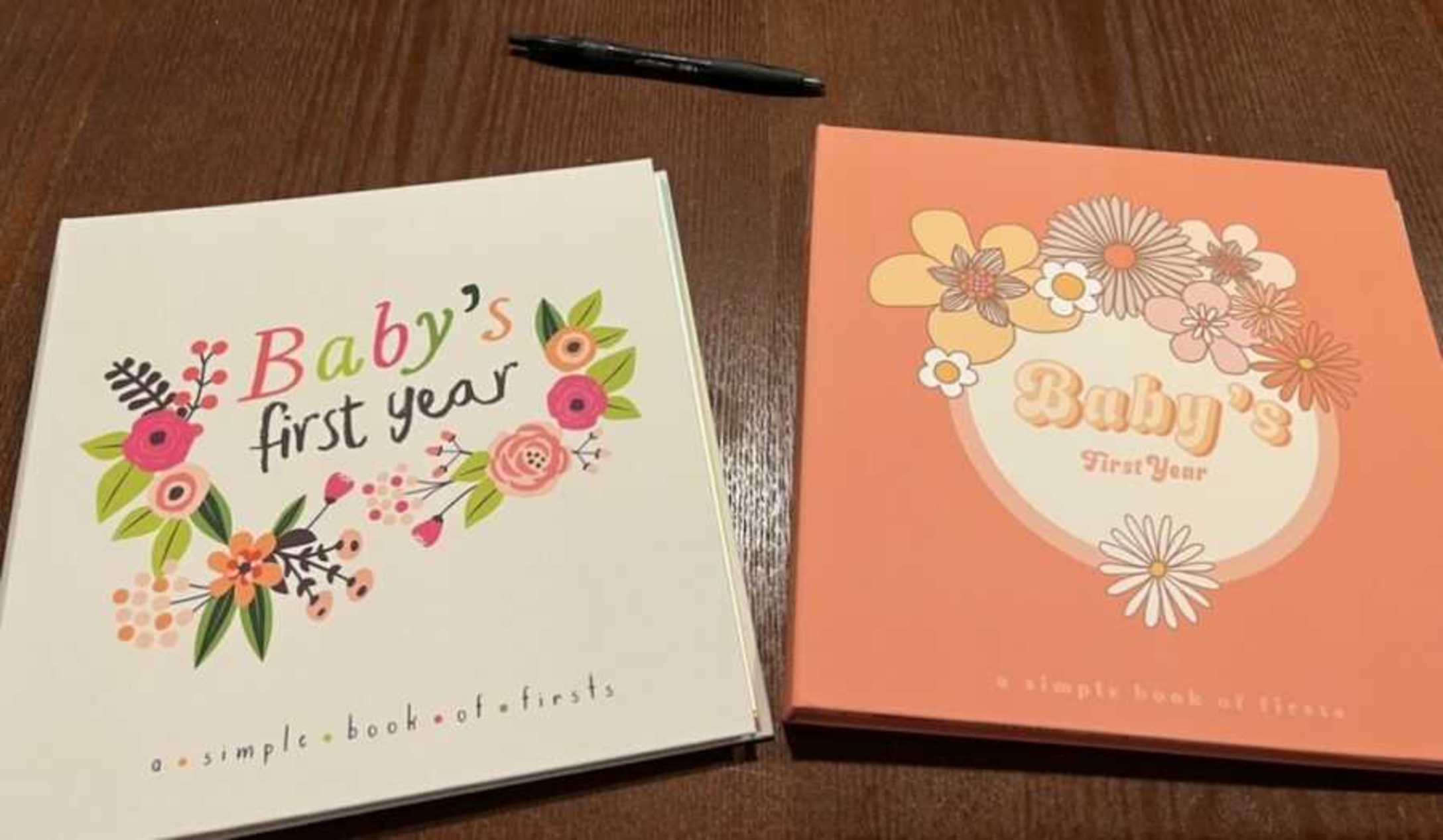
Weeks later, and I am still reeling from the trauma of being in the hospital, my emergency C-section, and the way my girls were brought into this world. I am constantly remembering every last detail of those few days, and that hurts. But now, this new trauma just completely overshadows anything else that had happened prior.
It feels like life just didn’t exist before this. Who knew that before I was even healed from my C-section incision, my husband and I would be going to a funeral home to discuss cremation options for our 2-week-old baby girl?
I did everything right; I had the most perfect pregnancy filled with health and good choices on my end. I wanted this more than anything in the entire world, for years and years, and I just don’t understand what I could have possibly done to deserve this. Nothing about this is fair or just or right.
"A" died in limbo — she wasn’t a miscarriage or stillbirth, but she also wasn’t a newborn in the sense that we brought her home or that her heart ever beat on its own. She never met her fur-siblings at home or any of her family members who all loved her so much.
I’m tired of answering everyone’s questions about V’s health, about the passing of A, and about how we’re coping. "How are you doing?" is an absurd question to ask J or me, and yet we’ve been asked that exact question more times than I can count.
We’re not "doing." There is no "doing." Our daughter died. Our baby died in our arms after living for only 15 short days, quite possibly in pain the entire time, being poked and prodded and experimented on.
Our other baby is going through all kinds of medical interventions and may not make it, almost definitely not without long-term side effects from all of this. It isn’t OK, and I can’t stop feeling so bad for myself and the life J and I have with each other.
At the time of writing this, V is now 2 months old. She is in the NICU and continues to go through intense medical procedures. She is gaining weight and continuing to fight for her life every day.
I still don’t know how to answer the question, "How are you?" because honestly, I don’t even know how I am. Some days feel OK, some days even feel good, and most days feel really, really bad. I think I have gone numb to a lot of what’s happening.
Life still feels like a blur, like I’m watching someone else experience this devastation. I don’t feel like myself. I don’t know if I ever will and I don’t even know what "myself" is anymore.
I most definitely don’t feel like a mother at this point. One of my daughters died, and my other daughter is still in an isolette while doctors and nurses try to figure out the best settings for her oxygen and feeding levels.
She’s not home with us to snuggle, I’m not able to breastfeed her directly (she’s still on a feeding tube), and I haven’t been able to dress her in cute onesies — things most new parents take for granted. Will I ever even get to do these things? It continues to feel like we are living in limbo, and yet the world somehow goes on around us.
I wish I had some profound advice to wrap up this story. I want to say everything will one day work out and I am now at peace. However, that is not, and has not been, my experience.
What I will say is this: Life is fragile and so very precious. Grief has no timeline. Marriage and motherhood are not at all what I expected. And love does make even the most impossible days a bit more bearable.
This story was republished with permission and was written by Mollie of Midlothian, Virginia. Follow her journey on Instagram.



